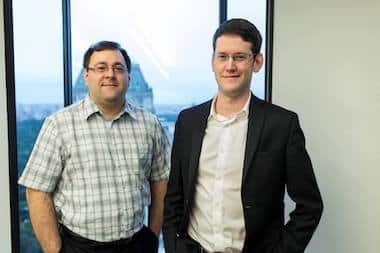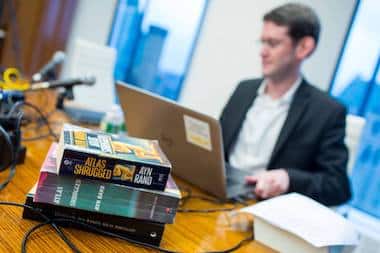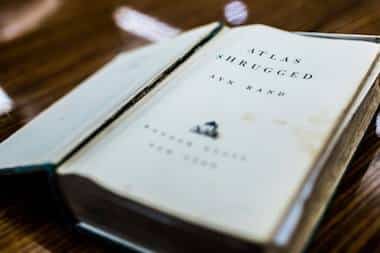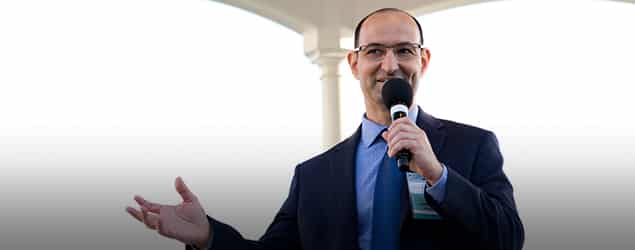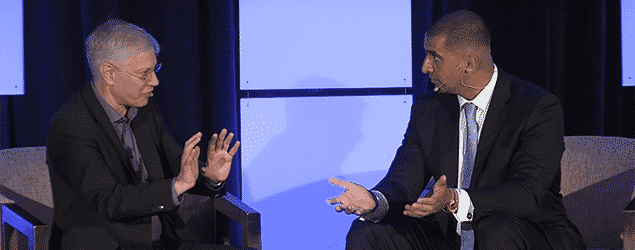The Atlas Project Update

Recently I was in New York with Greg Salmieri to broadcast the tenth regular episode of The Atlas Project, on the occasion of our completion of the first section of the novel, “Part I: Non-Contradiction.” In our New York City classroom in a Fifth Avenue skyscraper, overlooking Central Park, we met with one of our largest groups of in-person attendees.
Before that, I was in Atlanta for ARI’s second annual Ayn Rand Student Conference, where 146 students gathered to hear ARI-affiliated intellectuals explore the Objectivist view of what it means to stand for political liberty. Since Greg and I were both there, we did a special broadcast from the conference venue with students to discuss how Ayn Rand’s ideas of liberty were expressed in the first third of the novel.
One of the best features of the new format we’re exploring with The Atlas Project is its interactivity. Unlike the traditional recorded lecture format, readers can interact online over the course of the week by answering discussion questions and in real time during the broadcast. We could use even more interaction from our online audience, and so I want to encourage readers to check out the value of this interactive approach to reading Atlas for themselves.
If you haven’t been able to follow this interaction in real time, now is an especially good time to catch up, because The Atlas Project is now available on ARI Campus, ARI’s flagship interactive learning multimedia platform. On ARI Campus you can watch the same Atlas Project videos that are available on other platforms, but they’ve been broken up into topical sections. With a personal ARI Campus account you can track and save your progress through the discussion as you go. ARI Campus will also link you directly to The Atlas Project’s Facebook Group, where the main online life of the Project exists, hosting over 2,500 members who have posted over 3,600 written comments as of Episode 9.
If you prefer to catch up with The Atlas Project on other platforms, you can do that by watching the Facebook Live recordings with real-time comments which have now been viewed over 100,000 times altogether, as of Episode 9. You can also catch up on YouTube, where we know that people have actively sought out videos from the Project over 3,300 times, also as of Episode 9. You can also listen to audio podcasts of The Atlas Project on iTunes, Stitcher and SoundCloud. Between Itunes and Stitcher, the two most popular podcasting services, we estimate that there have been over 1,500 unique downloads.
Many people erroneously think of Atlas Shrugged as a book about politics, a defense of Ayn Rand’s radical capitalist viewpoint. But experienced readers know this is not the book’s theme. In Rand’s own words its theme is “the role of the mind in man’s existence.” So it’s noteworthy that up until recently, our discussion of the novel has hardly broached the topic of politics at all. We’ve instead focused on the rich emotional lives of the characters, their internal struggles about their work and their love, and their views of morality. Only with our broadcast from the student conference did we first begin to discuss the implications of all of this for political philosophy.
We’d like to thank all of the ARI donors and supporters who’ve helped us to deliver this unique content. Honorable mention goes to numerous individuals who’ve lent their expertise to solving the Project’s many technical challenges: a Facebook employee who’s given us valuable advice on how to maximize the social network’s resources, an audio engineer who built a custom device that enables me to be heard by the New York audience without causing an echo, programmers who built us a custom Facebook Live comment reader, a cellular industry expert who’s helped us tweak our mobile Internet connections, and a photographer who took excellent shots of the New York session the last time I visited. (You can see some of this work in this post.)
We’d especially like to thank two major ARI donors, without whom the Project would not have been possible in any form: Dmitry Balyasny, who hosted us at his Manhattan office space from which The Atlas Project broadcasts weekly, and the Snider Foundation, for its grant to underwrite the major overhead costs of the Project.
We should also thank all the ARI donors whose support over the years has helped build the institutional and intellectual infrastructure that made it possible to launch such an endeavor. Your support of ARI can help make more programs like The Atlas Project possible.
For more news on ARI’s activities in the United States and abroad, subscribe to Impact Weekly.

